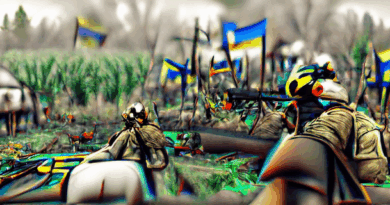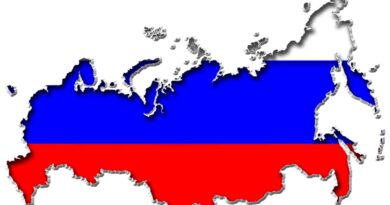Who Was Behind The Bloody Terror Attack On The Theater Near Moscow?

The horrific terror attack in the Crocus theater near Moscow by unknown gunmen has claimed upwards of a 100 lives at the time of writing. The number will likely multiply as by some estimates the audience numbered nearly 7000 and for a long time the building’s exits were inexplicably locked so the trapped public couldn’t escape. A great deal remains shadowy a day into the news cycle. It’s extraordinary that in a zone close to Moscow, a high security zone by definition in wartime, certainly bristling with face-recognition cameras as many Russian cities are these days, such a stealth attack could start and continue uninterrupted so long. Why did it take the police over an hour to show up and why did the Speznaz troops, arriving even later, charge in and then charge out? Why did the four or five terrorists get clean away from the scene without a surveillance trace?
The most critical question, one being debated worldwide because it carries geo-political consequences – who was behind the outrage? Conspiracy theories have instantly proliferated. Let us weigh the most important and see what looks plausible. Why should you listen to me? I have covered the Russosphere for 25 years in the Wall Street Journal and elsewhere, including here, and co-authored two books tracking Putin’s threat. So, let’s proceed. The Kremlin immediately blamed Ukraine’s armed forces. Which, of course, just as quickly led to focus on the Kremlin itself. In the wake of his ‘election’ win, Putin has just announced a mass-mobilization – a highly unpopular initiative for which he needs moral justification. Therefore, to generate such support, the Kremlin secretly planned the attack in order to call on outraged patriotic sentiment. So goes the conspiracy theory. That already makes two: was it Ukraine or the Kremlin? The US chipped in with a third, claiming to know that ISIS was the culprit and promising to show evidence in the coming days. And remember that Washington warned Moscow two weeks ago of an upcoming terror incident within 48 hours which Putin dismissed publicly as a kind of blackmail threat.
Let’s sift through the possibilities. First, did Ukraine author it? The answer must be no. Apply the cui bono principle – do so always in the context of the timing. Ukraine has no interest in provoking mass support for Putin and his mobilization. Kyiv has consistently shied from brazen attacks on civilian targets in Russia, calculating that Putin’s authority and popularity would only benefit. Furthermore, it makes little sense to waste assets and planning of this order on a non-military target that has no effect on the war. Ukraine is not averse to attacking inside Russia. They’ve even willing to include psychological impact calculations but manifestly with a strategic goal in view. Hence, the Ukrainians have chosen to bomb oil refineries inside Russia where concrete as well as psychological results ensue. Russia’s war machine gets slowed down and the public feel the pinch of cold conditions. But this kind of pointless outrage? No. Ukraine didn’t do it – as Washington and Kyiv quickly averred.
There’s a great deal going for the Kremlin false flage operation theory, as many pundits instantly argued. The Kremlin did something comparable in 1999, according to most commentators, when a string of terror bombings of Russian apartment buildings were used to justify Putin’s launch of the second Chechen war. To reiterate, most knowledgeable independent analysts sifting the evidence ascribe blame to the FSB under Putin. When there are real-life precedents, no theory can be dismissed as a conspiracy theory. In fact, a great many of the Putin-era terror attacks inside Russia have odd or suspicious attributes. Here’s a list of such incidents itemizing the suspect oddities. It’s a convincing pattern. But, in this particular case, was the FSB responsible? Washington doesn’t seem to think so, ascribing the Crocus theater outrage to ISIS. Perhaps, things will get clearer in the coming days, but likely not. Russian media under Putin has tended to blur and confuse rather than clarify such events.
So what about Washington’s assertion blaming ISIS and promising to show evidence? Now, we approach the nub of the matter, and what might be the most plausible explanation. It is, at least, more compelling than the myriad other speculations and has the advantage of fitting all the facts we know at this stage. Here’s the scenario: Washington acquired intelligence some weeks ago that Moscow was planning this or a similar outrage soon after Putin’s rigged election – with the intention thereby to re-invigorate the invasion of Ukraine. Something that Washington wished to discourage. Then, two weeks ago, Washington publicly warned the Kremlin that an atrocity within 48 hours was impending, in order to forestall the Kremlin’s plans of perpetrating just such an incident. Not because Washington believed ISIS or anyone else extraneous was planning it, but to snooker Putin into desisting. After all, he couldn’t face the embarrassment, in front of the Russian populace, of the US publicly knowing about a massive atrocity in his own country that he, apparently, didn’t know. And, once warned, doing nothing to prevent.
So, it had the desired effect of stopping him, at that point. But not for good. Two weeks later, the plan went ahead. And Putin duly blamed Ukraine. But, then, the US publicly blamed ISIS. Who’re you going to believe, even as a Russian? The US had warned of it. Putin rejected the warning. Plus, the Russian public has been fed on a diet of Islamic elements being behind just such atrocities in the past. Any mass popular hysteria against Ukraine to justify mass mobilization is duly deflated. And, finally, Washington’s maneuver feeds support among Russians for US actions in Iraq/Syria against ISIS, which Moscow routinely criticizes as interference, and even casts a shadow over Moscow’s friendships with the Taliban, even with Iran.
That’s the theory, anyway. But, of course, Moscow would surely have crafted additional theater to support their Ukraine hypothesis. Suspects caught near the Ukraine border. Confessions after severe beatings. It’s already happening. The ball is in Washington’s court. How will they counter Russia’s information war? That, too, is already happening. The ISIS outlet Al Amaq has laid claim to the atrocity. Can Washington engineer such a thing? No but an ally like, say Turkey, or a Gulf country, might be able to help do so.


![The Financial Jigsaw Part 2 (47) – THE RULING ELITE – Faith & Reason – FSD – Ukraine SitRep – UK High St, Decline – UK News Flash – Global South Challenge – Who is Kier Starmer? – [06-07-25] The Financial Jigsaw Part 2 (47) – THE RULING ELITE – Faith & Reason – FSD – Ukraine SitRep – UK High St, Decline – UK News Flash – Global South Challenge – Who is Kier Starmer? – [06-07-25]](https://wp.fifu.app/conspiracyresource.com/aHR0cHM6Ly9zdWJzdGFja2Nkbi5jb20vaW1hZ2UvZmV0Y2gvd18xNDU2LGNfbGltaXQsZl9hdXRvLHFfYXV0bzpnb29kLGZsX3Byb2dyZXNzaXZlOnN0ZWVwL2h0dHBzJTNBJTJGJTJGc3Vic3RhY2stcG9zdC1tZWRpYS5zMy5hbWF6b25hd3MuY29tJTJGcHVibGljJTJGaW1hZ2VzJTJGYWQzMmI2ZjktOTg2ZC00MjJhLTlhN2MtZjI4NTgwZWZlNWQzXzk4NHg1NTIucG5n/9c1878938158/the-financial-jigsaw-part-2-47-the-ruling-elite-faith-reason-fsd-ukraine-sitrep-uk-high-st-decline-uk-news-flash-global-s.webp?w=390&h=205&c=0&p=502592)